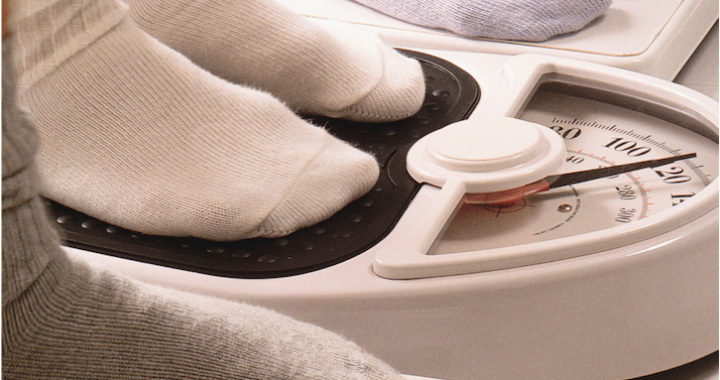Written by Jordan King, Content Writer
Western Reserve Racquet and Fitness Club
Results.
They’re the reason we exercise in the first place. Without a tangible way to track our progress, motivation dwindles and results become stagnant. Simple enough, right? But what happens when the results we rely on to track this progress aren’t reliable?
In the world of health and fitness, people often complain of weight scales skewing results–as if stepping on the thing wasn’t scary enough already. In reality, although weight loss is the result of calorie restriction, scale weight is actually reflective of many different factors.
Some Important Things to Know About Weight
- Weight can fluctuate between different scales.
- Some disparity is normal. It’s natural to fluctuate a couple pounds within a day.
- A big meal or a night of drinking influences your scale weight. We hope this one is a no-brainer.
- The average body is made up of 60% water.
- We metabolize excess water while we sleep, so we tend to weigh less in the morning and more at night.
- Water retention (aka water weight) adds to scale weight and is commonly caused by excess sodium and carbohydrate intake, as well as a low calorie diet.
- Contrary to popular belief, one of the best ways to reduce water retention is to drink 8-12 glasses of fluids per day.
- Fluctuating hormones can cause water retention among women.
- If you are new to exercising, don’t be discouraged by initial weight gain. When tissue is not working at its full capacity, it doesn’t volumize, or take in water. When we begin working our muscles for the first time in a long time, they pull in water so that they can work at their full capacity.
- Muscle doesn’t weigh more than fat; it takes up less space than fat, and it’s gained at an exponentially slower rate.
With so many factors that can influence your scale weight, it becomes clear just how, well, unclear calculating your true weight can be.
But Don’t Let This Deter You
Though intimidating for many of us, the scale shouldn’t be feared. Like a GPS, understanding how certain foods or exercises affect your body will ultimately help you get to where you want to go. In fact, according to the Cleveland Clinic, you should weigh yourself often. Just how often that might be is ultimately up to you. Too little, and you’re liable to be in for a surprise; too much, and you can become discouraged or form an unhealthy obsession.
WRRFC Fitness Trainer & Personal Trainer, Nikki Austin, recommends stepping on the scale once a week, as considerable progress is more likely to come at the end of each week than at the end of each day. However, if you’re competing in weight classes, WRRFC Head Personal Trainer, Adam Whitlach, suggests weighing in at least every day to ensure you understand how certain foods affect you.
So at the risk of telling you what you don’t want to hear: it’s different for everybody. That being said, there are certainly things everybody should always (and should never) do when stepping on a scale.
Do…
- define how often you plan to weigh yourself, and stick to that plan, making sure your workout level is relative to your calorie intake.
- weigh yourself on the same scale every time.
- weigh yourself at the same time of day; morning is recommended.
- get enough sleep each night, since we metabolize excess water while we sleep.
- skip the scale during ‘that time of the month’ if you are a woman, since hormones influence water retention.
Don’t…
- weigh yourself after a night out or after a big meal.
- weigh yourself immediately after a workout, as you’re likely to have either lost or gained a considerable amount of water.
- weigh yourself with shoes or heavy clothing on.
- move your scale around often, as different surfaces can cause inaccurate readings.
- change too many aspects about your diet or physical activity at once, as this can make it hard to understand what exactly is helping you achieve results.
And Most Importantly…
Remember that goal orientation is the name of the game. This means making clearly defined goals that you are in control of. Many of us tend to set unreasonable goals that we simply won’t keep up with over time. You don’t have to subscribe to a Paleo diet just to lose weight, and in fact, you shouldn’t if you won’t adhere to that goal over time. Instead, set sustainable goals.
Flexible dieting is sustainable, whereas a strict Paleo diet may not last longer than a couple weeks. At that rate, you’re not doing much for your body except confusing it. Monitoring carbs in a balanced diet is sustainable, whereas cutting them out completely is not only unrealistic for most people, but unhealthy.
Beyond the scale, there are also other ways to track progress over time, including measuring yourself in inches or taking before and after photos. But hey, if tracking progress altogether isn’t your thing, I’ve heard that ignorance is bliss. Don’t quote me on that though.
Have any other ideas? Write them below!

